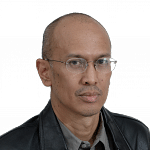JAKARTA - President Joko Widodo on Monday (Aug 16) promised to continue expansive government spending policies in Indonesia next year to bolster social and economic recovery, as he warned that great uncertainties will linger with the Covid-19 pandemic dragging on.
The healthcare sector would still be among the priorities next year as the government continues efforts to control Covid-19, said Mr Joko as he delivered his 2022 state budget address.
Social protection programmes for the poor and vulnerable, and plans to reduce inequality will stand out in next year's budget programme, with a planned total spending of 2,708.7 trillion rupiah (S$256 billion), he added.
Of this, 9.4 per cent would be spent on handling the pandemic and other healthcare-related matters.
Indonesia's economy next year is forecast to grow between 5 per cent and 5.5 per cent.
"We will exert maximum efforts to achieve the growth target's ceiling of 5.5 per cent. However, we must remain vigilant because the development of Covid-19 is still highly dynamic," the President said.
Sticking to his practice of making the annual speech in tribal wear, he arrived at the Parliament building wearing mountain sandals and the traditional clothes of the Baduy, a tribe in remote parts of Banten province.
Earlier in the day, in his annual state-of-the-nation address as Indonesia celebrated its Independence Day, he appealed to his people to continue to work together and stay resilient, noting that the coronavirus had made the country stronger and driven it to make prompt improvements to face future challenges.
"Crisis, recession, and pandemic are like fire… if they do occur, there are many things we can learn from them. Fire does burn us, but they also cast light on us," the President, popularly known as Jokowi, told Parliament.
He reminded Indonesians that the nation had overcome various crises and considered them as tests that strengthened its social, political and economic foundations.
Indonesia is fighting the highly transmissible Delta variant of the virus that hit the world's fourth-most populous nation with record high daily infections and fatalities last month.
Stricter containment measures taken since July 3 have helped to bring down the number of daily new infections on Java and Bali islands, where 60 per cent of the population live, but cases have surged in other parts of the archipelago.
Since the start of the pandemic, South-east Asia's most populous nation has recorded 3.85 million infections and more than 117,000 deaths.
Healthcare services provided by the state, as well as the private sector, across the country's 34 provinces have seen improvement during the past 1½ years as the nation struggled to curb the spread of the coronavirus.
"The number of healthcare services in many regions has significantly increased, be it additional hospital beds or supporting facilities," Mr Widodo noted in his speech, stressing this would provide a stronger footing for Indonesia to increase people's welfare when the pandemic is over.
The pandemic has sounded the alarm for Indonesia to pay greater attention to the weak links in its healthcare system.
Mr Widodo said the lack of self-sufficiency in the pharmaceutical, vaccine and medical equipment industries "remains a major drawback that we must address".
He noted that the pandemic has spurred development of Indonesia's domestic pharmaceutical industry, including ongoing efforts to develop the nation's own Covid-19 vaccine and strengthen the medical oxygen industry.
Public awareness of health has also increased significantly. "A healthy lifestyle, maintaining environmental hygiene, exercise and consuming nutritious food have become a culture," he said.
"This is a valuable asset to build a healthier society and in developing high-quality human capital."
But health is a shared goal. "If you want to be healthy, others must also be healthy," Mr Widodo said. "If someone is infected with Covid-19, it will pose risks to others."












